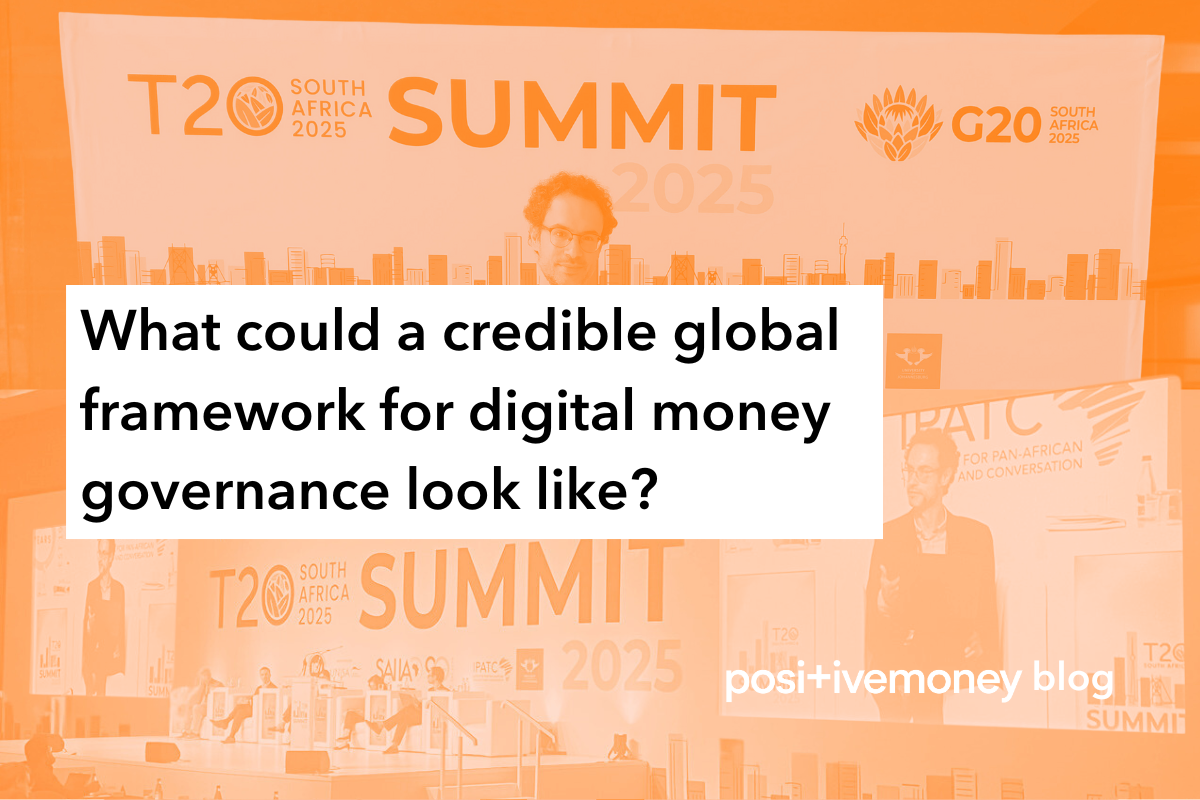
The future of moneyGlobal
2 December 2025
The final in our series of four panel discussions on the topic of ‘Can progressive macroeconomic policy for a just transition work domestically and internationally?’
Since the 2008 crisis, many leading thinkers have called for a new economic settlement. Central bank power has expanded with little accountability, with different kinds of economic policy (like monetary and fiscal) pulling in opposite directions. The ecological crisis, intersecting with new kinds of crises in the financial sector, price instability, rampant inequality within and between countries, and social and political unrest, makes establishing a new macroeconomic regime an even more urgent task.
Across two days in June, jointly with UCL’s Institute for Innovation and Public Purpose (IIPP), we brought together experts and civil society representatives to discuss what a macroeconomic framework for a just transition would look like, at national and international levels. Watch the fourth and final discussion below.

This panel addressed issues like the appropriate role for private and public actors in financing a just green transition, what kinds of coordination are needed between state and non-state institutions, and whether “de-risking” (the state reducing risks to make a project more attractive to investors) is a good way of incentivising investment in clean energy.
Dr Devika Dutt is a Lecturer in Development Economics at King's College, London, and a specialist in the political economy of foreign exchange intervention, central banks, and macroeconomic policy in developing economies. She highlighted the reduced capacity of Global South countries to tax and spend as a key concern, especially after Covid-19. international institutions have made it very difficult for Global South states to mobilise resources through taxing capital gains, wealth, or income.
You can follow Devika on X at @devikadutt. Look out for her forthcoming co-authored book Decolonising Economics.
Katie Kedward is an economist at the UCL Institute for Innovation and Public Purpose and a consultant at the World Bank working on the nature transition. She talked about how central bankers often see their role as ensuring climate policies don’t pose risks to financial balance sheets, rather than protecting the planet from the destructive activities financed by the banking sector. She argued that we need to move away from the doctrine of ‘market neutrality’ in monetary policy which prevents credit allocation policies.
Follow Katie at @katie_kedward to see her latest policy publications.
Dr Brett Christophers is a Professor of Geography at Uppsala University. Brett discussed some of the issues around investment in renewable electricity generation. He argued that some forms of de-risking are necessary to scale-up this critical sector, despite potential discomfort with state subsidisation of private profits.
Check out Brett’s latest book, The Price is Wrong: Why Capitalism Won't Save the Planet (Verso).
This final panel in our series raised important questions about a just transition. For example, what do we mean by “risk”, and who should bear the risks of transitioning our energy, food and transport systems? We need to think carefully about the ways we want to set up our banking sector, private firms, and state institutions so that these risks are distributed fairly.
Catch up on the first three videos in the series on our YouTube playlist here.
___
Sign-up to our mailing list for regular updates, or donate to support our work to redesign our economic system for social justice and a liveable planet.
